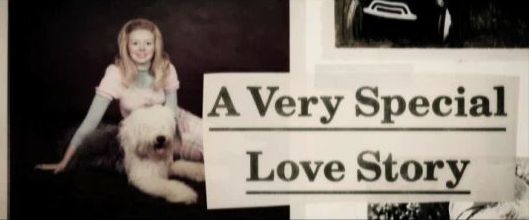
When Errol Morris came to Los Angeles to promote his new documentary “Tabloid,” he also willingly came to talk ecstatically about his past films, too. I didn’t mind this because I’ve always thought Morris is the best documentary filmmaker that we’ve ever had.
“Gates of Heaven,” (1987); “Vernon, Florida” (1981); “The Thin Blue Line” (1988); “Fast, Cheap and Out of Control” (1997); “Mr. Death: The Rise and Fall of Fred. A Leuchter Jr.” (2000); “The Fog of War” (2003) and “Standard Operating Procedure” (2008) are reasons why he rings at the top of the A-list.
I am tirelessly enthusiastic about “Mr. Death” in particular, about an expert in execution methods who was commissioned by a Holocaust denial coalition, but I understand why that title might scare most people off. As evidence of Morris’ impact, “The Thin Blue Line” is a film that actually got a man on death row reprieve to freedom after being wrongfully imprisoned for several years in Texas. “The Fog of War” is an interview and tapestry of former U.S. Defense Secretary Robert McNamara. “Standard Operating Procedure” was about the crimes at Abu Ghraib.
 His latest documentary “Tabloid” is nothing short of mesmerizing. I don’t say that about many docs, not even all of his. Joyce McKinney, his latest subject, had 15 minutes of fame in 1978 before stretching it out well beyond. The former Miss Wyoming chased her love obsession Kirk Anderson as he rested upon his Mormon missionary in England where she kidnapped him and allegedly forced him to have sex. The sex bondage compiled with brainwashing, the ensuing arrest had difficult charges to categorize, and the following media frenzy would paint two wildly different sides to the story – one of them blowing the lid off of McKinney’s prostitution past which she vehemently denied. The older, plucky and funny McKinney, talks to the camera throughout the film while Morris interweaves television files, headline clips and opposition interviews to counteract her story. Did McKinney hate the invasion of privacy that came into her life as she claimed or did she love the attention?
His latest documentary “Tabloid” is nothing short of mesmerizing. I don’t say that about many docs, not even all of his. Joyce McKinney, his latest subject, had 15 minutes of fame in 1978 before stretching it out well beyond. The former Miss Wyoming chased her love obsession Kirk Anderson as he rested upon his Mormon missionary in England where she kidnapped him and allegedly forced him to have sex. The sex bondage compiled with brainwashing, the ensuing arrest had difficult charges to categorize, and the following media frenzy would paint two wildly different sides to the story – one of them blowing the lid off of McKinney’s prostitution past which she vehemently denied. The older, plucky and funny McKinney, talks to the camera throughout the film while Morris interweaves television files, headline clips and opposition interviews to counteract her story. Did McKinney hate the invasion of privacy that came into her life as she claimed or did she love the attention?
Entering the room with inimitable intelligence, Errol Morris is besides a soft-spoken and ebullient character amused by why he is greeted by such appeal to the media. When you have ten highly praised documentaries behind you, Mr. Morris, you’re going to have appeal.
How did you decide that Joyce McKinney would be the subject of your next film?
I saw the story on the AP Wire. I thought this could be interesting. Originally I was thinking about it almost as a first-person story. I called Joyce but she wasn’t interested. Then a good part of a year later I was offered a deal on Showtime to do a series, and the title of the series was going to be “Tabloid,” and I thought this could be the pilot. We contacted Joyce again. Joyce now was in Southern California. I was in Southern California, and she came in for an interview. One interview, that was the extent of it. I’ve had only two meetings with Joyce McKinney. One was the initial day in the studio shooting that interview, and I was on stage with her in New York after a screening of “Tabloid.” Other than that I haven’t really crossed paths with her.
What were her reactions to the film? How do you think she felt about it?
Well, she has complained about the film—complained that the film was not completely oriented against the Mormon Church, as if that was the reason I was making “Tabloid,” to attack the Mormons and Mormonism. In fact that was not the reason I made the movie. I know that whenever you do a story about a real person there’s going to be trouble of some kind. People have expectations of what they’d like the movie to be versus what the movie really is. It’s inevitable.
Have you had experience with that in other documentary subjects? How about Fred Leuchter of your “Mr. Death” film?
Well, I gave Fred the opportunity to see the movie. He saw the entire movie. I put him on the Interrotron and I said to him explicitly, ‘You know, Fred, I don’t agree with any of this stuff. I believe poison gas was used at Auschwitz, and your so called proof is not terribly compelling.’
So you were direct with him?
Actually it’s the most direct that I’ve been with anybody! No, I believe I was direct in “The Thin Blue Line” too. There is a factual matter. You’re making a claim about something that happened or didn’t happen. If the Dallas Police say Randall Adams shot police officer Robert Wood, that is a true or false claim. Finding an answer to that is at the center of the enterprise. Finding an answer to Fred’s claim however that poison gas wasn’t used at Auschwitz-Birkenau is at the center of the “Mr. Death” story.
[Morris goes on a peculiar but interesting detour; in a way, I think it says something about Joyce of “Tabloid” and the non-corroborative parts of her story as well].
For good reason, because there are answers in history, but sometimes we can’t know what those answers are. I’ll give you a perfectly good example of that kind of thing. Historical evidence is perishable. Somebody destroys all the historical evidence for any historical event, it’s going to make it pretty hard to come to a conclusion about what really happened. It doesn’t mean that something didn’t happen, but we may not be able to ever determine what that is.
There’s two people here losing—the tabloid people lost their evidence and she lost her evidence, you’re saying?
That’s absolutely correct. You have people losing evidence and you have people dying— Take the kidnapping itself. There’s K.J., her friend and partner in crime, per se. K.J.’s dead. You can’t interview him. There’s Kirk [the object of Joyce’s obsession], the one key person who refused to be interviewed [for the film]. Do I know ultimately what happened? Was he taken by force—either in the love cottage or from his missionary work? I don’t really know.

We’re talking grey area. Is it fascinating to film stories of moral dilemmas where both parties have room enough to be wrong?
In what sense? In a sense was it wrong for Joyce to try to force Kirk’s hand? Was it wrong for Kirk to abandon Joyce and so on and so forth? There is so much ambiguity in the story of every variety and stripe. It’s one of the reasons I like the story. My job as a filmmaker, if I can uncover some underlying truth or reality that is essential to the story, I go after it. In “The Thin Blue Line,” in “Standard Operating Procedure,” in “Mr. Death” I went after it in all three of those instances.
“Tabloid” is a different kind of story in the sense that what really fascinated me in this story is these competing narratives at war with each other. There are various tabloid journalists, both had a need to tell their own version of reality. Joyce, certainly. We have one more version, and the ongoing uncertainty about what really transpired in all of this. It’s casting a net around that, making sure the ambiguities are in the movie, that people can think about the mysteries. The mysteries themselves interest me. I’m still obsessed by this crazy story.
Without the use of re-enactments you do use titles and news clippings to force the audience to think of your proposed thoughts on the story, true?
When you see ‘kidnapped’ come up on the screen, you are forced to address the potential question: Was Kirk Anderson kidnapped, taken by force? Was he spread-eagled on that bed and shackled? It’s taking us into the essential mysteries of the story. It’s the way of focusing the attention of an audience on some salient detail in a mystery.
In the thirty years since the story took place, this all seems so innocent now. The line between tabloid journalism and legitimate journalism has become hopelessly blurred, and we’re constantly bombarded with sensational stories. When you look at what’s going on now in Britain [in the News of the World scandal], do you think this implosion was inevitable?
I think it would be wrong to conclude that all tabloid journalism in bad. Tabloid journalism is a kind of journalism that focuses on stories that grab a hold of us. It could be two or three or four lines. I like to think of the Bible as an extended tabloid story. Tabloids clearly played a destructive role for Joyce in her life, and I wouldn’t argue otherwise. That pull of journalism of trying to create narratives is part of a deeper problem of journalism per se. I don’t think it’s just simply true of tabloid journalism. The “News of the World” story is extreme. Here you have parents who are worried their daughter is dead, and they start monkeying around with the evidence while the police are trying to find out what happened to this girl. It doesn’t seem altogether defensible. It seems to have crossed deeply some kind of line. Is that true of the story of Joyce McKinney? It’s much harder to make—for me. I’ll leave each one of you to decide for yourselves. But Joyce was not an unwilling participant in this. Joyce came over to the UK with the chloroform and the handcuffs and the fake gun. Maybe it got out of hand, but I don’t think that she can claim total innocence in what happened. She provided the story for the tabloids that was just…. too good to be true.
What’s your definition of sexual compulsion in regards to Joyce?
Sexual compulsion? Uh, I have no idea. Ahhh…. She, uh… she’s remarkable. She’s a person that refuses to give up. It’s a romantic idea in and of itself. And the fact that she does get pregnant at the end is one of my favorite lines of the movie. [Mimicking McKinney] ‘We’re pregnant! ! !’ Can’t remember, I think that put that on the screen. In case anyone is wondering, the font I used is IMPACT. [Lots of laughs, Morris giggles].





